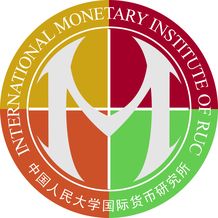观点速递
本文作者是德国中央合作银行高级行政银行业务的全球负责人弗兰克·沙伊迪希,原文摘自国际货币金融机构官方论坛(OMFIF)《全球公共投资者》第四期年度报告,OMFIF是一家总部位于伦敦的全球金融智库。
作者提出,金融科技公司通过科技要素的介入推动了金融服务转型,取得良好收益。然而,这些创业公司的发展也需要银行、交易所等战略合作者来帮助解决监管复杂、基础设施成本高等问题。作者介绍了“欧洲私募设施”,允许金融科技公司有监管地介入债券发行过程,推动整个市场甚至经济的发展。
中文译文如下:
金融科技私募计划
——在债务资本市场上与银行展开合作
弗兰克·沙伊迪希
翻译:李雪怡
审校:肖柏高
如今,金融科技公司是大家的宠儿。主要金融中心和众多银行都有自己的金融科技孵化器或加速器。金融科技公司没有历史包袱的限制,因此都对自身的创新和颠覆能力引以为傲。这一点主要体现在零售市场上,建立了诸如P2P借贷公司Zopa,以及外汇交易公司TransferWise。金融科技公司因可直接向客户推广自己的服务而蓬勃发展。与老牌企业相比,金融科技公司因更具成本效益、更易操作,并且专注细分市场,从而获得市场收益。
这些方法并不总能转化为诸如资本市场的批发市场。金融科技公司必须克服极大的障碍,包括复杂的监管、信息技术系统、资本要求以及对可接受标准的需求。这可能就是为什么这些由银行或诸如交易所的战略参与者所支持的公司往往比没有这类支持的公司成长得更快、也更加成功。
颠覆批发市场不太常见、也不太可取。金融科技公司可以与银行合作,并通过更好地将数据等现有资产货币化,或通过共担行业成本来增加价值。成本分摊的理念已经通过支付结算系统之间的合作普及开来,如支付公司Swift和美国的清算公司DTCC等。区块链领域的R3财团等合作式创业公司已经采用了类似的方法。而如TrustBills等其他公司更多关注的是商业银行领域而不是资本市场。
与为零售客户提供新颖的利基产品相比,建立行业公用设施显然更加困难。德国中央合作银行正与同行合作,通过银行、发行方、投资者均已采用的成本均摊化为变革债务资本市场的行业公用设施提供支持。
“欧洲私募设施”是一个由卢森堡金融行业监管委员会(CSSF)监管的中立且独立的平台。该平台允许借款方——公司、市政当局、地区、主权和机构——以快速、规范、具有成本效益的方式发行债券。这将有助于银行恢复股本回报并优化监管合规。借款方将能以前所未有的方式开拓市场。投资者将能够获取标准文件,严格的质量把关,并且有权访问数据中心,以便协助开展尽职调查。由于国家边界仍将市场限制在较小的区域内,“欧洲私募设施”计划也应通过建立跨域边界的桥梁来惠及各国经济。
通过提供完整的债券发行价值链,“欧洲私募设施”计划允许所有利益相关者专注自身最擅长的领域——银行发行并募集债券,投资者分析并做出明智的投资决策,借款方挖掘大量潜在的投资者,监管方有效监管。各方都由“欧洲私募设施”联系起来。尽管这只是改进性而非颠覆性的计划,但其实现的结果是革命性的。由于规模经济巨大,交易可以通过T+1(交易日后一天)结算。这在未来将提升为T+0,消除一级市场和二级市场的差异。债务文件的标准化更易于比较,也使交易者和投资者更易理解,因而流动性也将大大提升。
降低成本将帮助新发行方进入市场,减少经济对银行资金的依赖。如果主权基金与银行危机不再相互关联,那么经济整体的韧性和稳定性将会有所提高。该私募计划便是良好的范例:通过开放性的办法,发挥金融科技公司的作用,推动整个市场甚至经济的发展。该计划有望能够成为以合作方式提供变革性服务的行业公用设施中的先驱。
英文原文如下:
Fintech initiative for private placements
Working with banks on debt capital markets
by Frank Scheidig in Frankfurt
Mon 12 Jun 2017
Fintech companies are everybody’s darlings. Major financial centres and many banks have their own fintech incubators or accelerators. Unconstrained by legacy systems and processes, fintech companies take pride in their ability to innovate and disrupt. This is seen primarily in retail markets with the establishment of companies such as the peer-to-peer lender Zopa, and TransferWise for foreign exchange transactions. Fintech companies thrive because they can promote their services directly to customers. They make market gains against incumbents by being more cost effective and easier to use, and by focusing on niche areas.
These methods do not always translate to a wholesale environment such as capital markets. Fintech companies must overcome considerable barriers including the complexity of regulations, IT systems, capital requirements and the need for accepted standards. This may well be why those companies backed by banks or other strategic players, such as exchanges, tend to reach maturity faster and become more successful than those without such support.
Disruption in wholesale environments is less common but also less desirable. Fintech companies can work alongside banks and help add value by better monetising existing assets such as data, or by mutualising industry costs. The idea of mutualising costs is already well established through partnerships such as the payment system Swift or the DTCC in the US for settlement issues. A similar approach has been taken by collaborative start-ups such as the R3 consortium in the blockchain environment. Others such as TrustBills are looking more at the commercial banking sector rather than capital markets.
Establishing industry utilities is infinitely more difficult than offering a new niche product to retail consumers. DZ BANK is working with peers to support an industry utility that will revolutionise debt capital markets by mutualising costs that so far have been carried by banks, issuers and investors alike.
The ‘european private placement facility’ is a neutral and independent platform regulated by the Luxembourg financial sector regulator (CSSF). It allows borrowers – companies, municipalities, regions, sovereigns and agencies – to issue debt securities in a fast, standardised and cost-effective way. This will help banks restore their return on equity and optimise regulatory compliance. Borrowers will be able to tap markets in a way not possible before. Investors will have access to standard documentation, stringent quality control and data hubs for help in carrying out due diligence. The eppf initiative should also benefit countries’ economies by bridging national borders, which still limit markets to smaller regional pockets.
By offering the complete value chain of a bond issuance, eppf allows each stakeholder to concentrate on what it does best – banks originate and place bonds, investors analyse and make informed investment decisions, borrowers tap a large universe of potential investors, and regulators supervise efficiently. The link between them all is eppf. Although evolutionary rather than disruptive, the results it achieves are revolutionary. Owing to the immense economies of scale, trades can be settled at T+1 (one day after the trade date). This will improve to T+0 in the future, eliminating the difference between primary and secondary markets. The standardisation of bond documents makes them easier to compare and easier for traders and investors to understand. This will improve liquidity.
Lower costs will enable new issuers to access markets, reducing an economy’s dependence on bank funding. If the link between sovereign funding and banking crises is broken, the overall resilience and stability of economies will increase. The private placement initiative is an example of how, with an open-minded approach, fintech can be used to the advantage of a whole market and even entire economies. The hope is that it is the first of many industry utilities that provide revolutionary services in a collaborative way.
Frank Scheidig is Global Head of Senior Executive Banking at DZ BANK. This article appears in OMFIF's fourth annual Global Public Investor report.

观点整理 田雯
图文编辑 田雯

关于我们
中国人民大学国际货币研究所(IMI)成立于2009年12月20日,是专注于货币金融理论、政策与战略研究的非营利性学术研究机构和新型专业智库。研究所聘请了来自国内外科研院所、政府部门或金融机构的80余位著名专家学者担任顾问委员、学术委员和国际委员,70余位中青年专家担任研究员。
研究所长期聚焦国际金融、宏观经济理论与政策、金融科技、财富管理、金融监管、地方金融等领域,定期举办高层次系列论坛或讲座,形成了《人民币国际化报告》《金融机构国际化报告》《中国财富管理报告》《金融科技二十讲》等一大批具有重要学术和政策影响力的产品。
2016年,研究所入围《中国智库大数据报告》影响力榜单列高校智库第4位,并在“中国经济类研究机构市场价值排行榜(2016)”中名列第32位。
国际货币网:www.imi.org.cn
微信号:IMI财经观察

4000520066 欢迎批评指正
All Rights Reserved 新浪公司 版权所有

